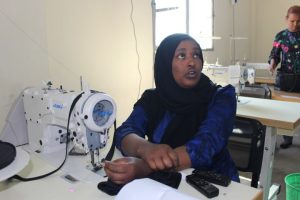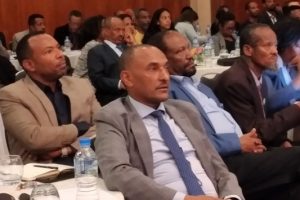
ADDIS ABABA – The Ethiopian Veterinary Association (EVA) has advocated for strengthening the development of animal welfare for a bearable environmental ecosystem and national economic growth.
Association President Bojia Duguma (DVM) told the Ethiopian Press Agency (EPA) that animal welfare and veterinary public health became Ethiopia’s priority, which in turn, ensuring a resilient food system, maintaining ecological balance and economic growth.
He also noted that apart from animal productivity, it remains an essential mechanism to address environmentally induced challenges and ensure societal growth and boost trade facilitation.
“In the contemporary world, animal welfare is manifesting in different shapes. And, the introduction of animal welfare science is also an integral part of sustainable development, social behavioral change,” Bojia reiterated.
According to him, about 80% of the rural community’s socioeconomic activities and productivity is mainly dependent on animals and it is a means of transport especially in rural areas.
He further remarked that animal welfare, which is increasingly demanding as an integral part of one health, one planet and one welfare paradigm, needs to be an integral part of livestock development and human wellbeing and sustainable growth.
The association, with about 4,000 veterinary professionals is widely engaged in research, service and advocacy, and national veterinary education in various institutions across the country. Similarly, it has been working with animal welfare working groups, research centers and non-governmental organizations to promote the sector over the past years, the President said.
Citing developed countries’ experiences on animal caring, Bojia emphasized animal’s sanctuary reflects the societal images and the overall development. “It is also crucial to give equal consideration for climate and environmental related issues in line with global health security.”
Urging veterinary experts and working groups to discharge their prior role in the sector, he advocated for strengthening vibrant organizational cooperation and stakeholder’s active participation for the betterment of the wildlife ecosystem to eliminate zoonotic diseases.
Moreover, the absence of a veterinary sanctuary and legal frameworks in the country has been impacting experts to advance professionalism in the area and firmly employ quality and demand-driven researches, service delivery and teaching processes effectively, he underscored.
More importantly, the animal’s right legislation and regulation, which is on the pipeline to endorsement, would be a great opportunity to magnify interventions to safeguard animal’s welfare meaningfully and unlock the prevailing challenges in the sector.
BY ASHENAFI ANIMUT
THE ETHIOPIAN HERALD FRIDAY 1 NOVEMBER 2024





